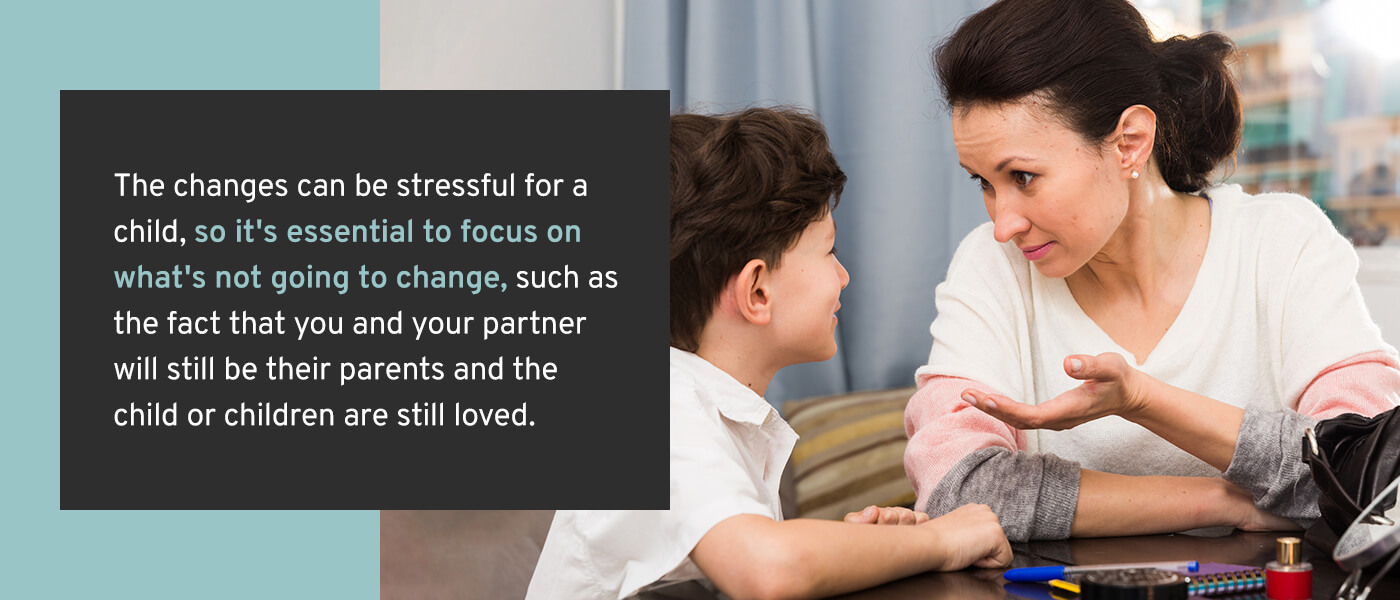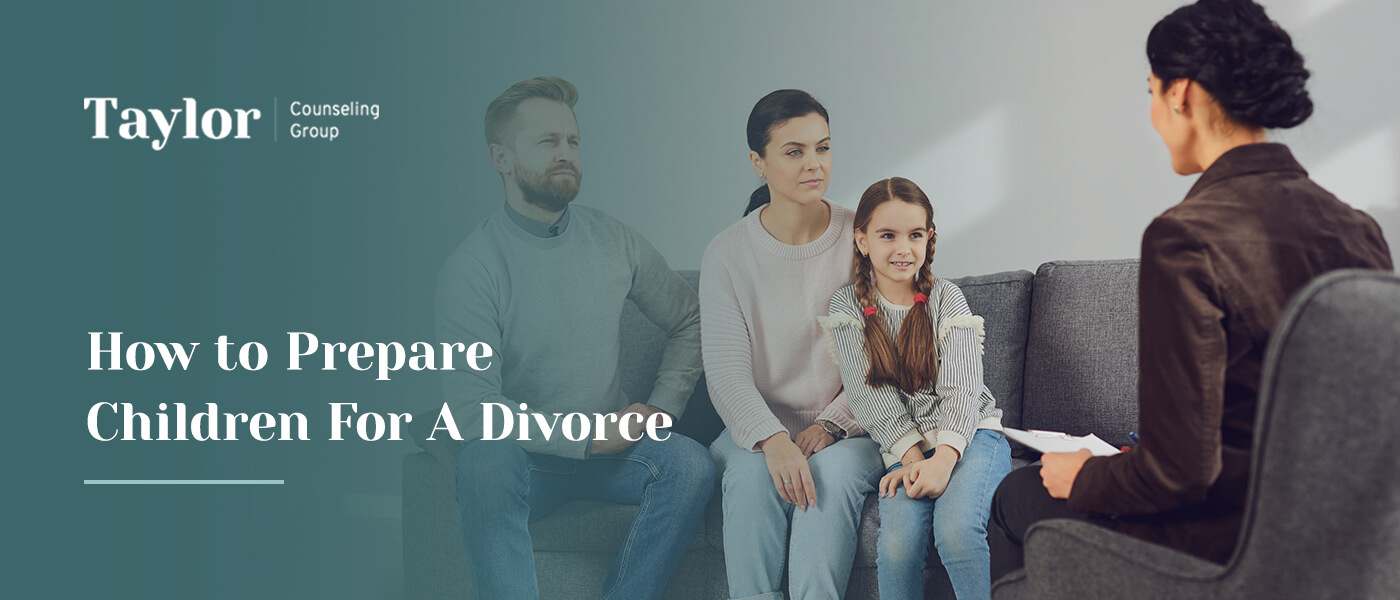Divorce can be a challenging experience, even if it’s the best thing for the family. Getting divorced can be better than staying together if a relationship has become unhealthy, especially when children are involved. However, getting a divorce without preparing your children can significantly impact their well-being. Parents must learn new ways to relate to each other and parent their children.
It’s essential to talk with your partner so you can prepare your child or children for the upcoming divorce. Below, you’ll learn more about how children are affected by divorce and what you can do to communicate with children throughout the process so they’re prepared for the various changes that can potentially occur.
How Does Divorce Affect Children
Children unprepared for their parents’ divorce can experience various effects that affect their overall well-being. While some children may react to their parents getting divorced with understanding, other children may struggle with the changes, especially if they haven’t received enough communication from their parents. Some of the effects a child may experience from divorce include:
- Poor academic performance: With all the changes that come with divorce, children can become distracted and confused, which can cause them to fall behind in their studies.
- Loss of interest in socializing: Children experiencing divorce at home may experience challenges relating to their peers, making them feel more isolated. Young children who don’t know much about divorce may feel like they’re the only family going through these types of changes, and these feelings and distractions can cause them to lose interest in socializing with friends or making new connections.
- Difficulty adapting to changes: Children can find it challenging to adapt to divorce because they have to learn and adjust to new things more often than usual. New living situations, dynamics, schools, friends and other changes can significantly impact a child.
- Anger, irritability or emotional sensitivity: If children become overwhelmed by the divorce, they may experience anger, irritability or other types of emotions that they may display to their family, friends and peers. Children experiencing these emotions due to a divorce need an outlet for these feelings, which can include having someone to talk to about what they’re going through.
- Feelings of guilt: Children will often wonder why a divorce happens in their family unit and will look for reasons. Children may blame themselves and feel guilty, leading to negative behaviors and emotions.
You can prevent many of these effects by communicating with your children about divorce and using various methods to help your child feel more comfortable with the transition. With assistance, a child can experience a divorce as a life transition rather than a crisis.
6 Tips to Help Your Children Through a Divorce
Divorce can be challenging for everyone involved, especially children, who may not understand what’s happening or why things must change. Use the following tips to help your children feel more comfortable with the changes happening in their lives and help them manage their complex emotions.
1. Rehearse What You’ll Say
Ideally, you want to prepare what you will say to your children with your partner. Even if you and your partner aren’t on good terms, it’s best for the child to talk about divorce as a united front so they don’t feel like they have to choose sides.
Often, it’s enough to tell your children that you and your partner are experiencing adult problems that you can’t fix, and you’ve decided to end your marriage. However, you should tell your child that you’re staying committed to parenting and they are still safe and loved by both of their parents.
2. Anticipate Delayed Reactions
Some children can appear to take the news of divorce in stride but experience distressing emotions in a few weeks or months. These delayed reactions are a normal stage of grief as they move from denial to anger or sadness. You should let children know their feelings may change over time and that you’ll be here for them to help them navigate these changes and the transition.
3. Emphasize What Will Stay the Same

A lot can change in a divorce, including the dynamic at home, school districts, location and friends. These changes can be stressful for a child, so it’s essential to focus on what’s not going to change, such as the fact that you and your partner will still be their parents and the child or children are still loved.
You should also try to keep routines as normal as possible to help reduce how much will change during the divorce process. For example, ways you can keep the routine the same include maintaining the current house rules, responsibilities and chores. Try to keep the same schedule whenever possible, with both parents remaining actively involved in the child’s life.
While there are some things you can’t prevent from changing, you should try to keep things the same in as many ways as possible to help your child adjust.
4. Remind Them It’s Okay To Talk About What They’re Feeling
Your child may want to share their thoughts or feelings about the divorce, or they may even have questions. You should validate your child’s feelings and offer to help them in any way you can.
If your child doesn’t want to talk about the divorce, don’t try to force them into a conversation. You don’t want to pressure your child to open up before they’re ready or make them feel like they have to take care of you. Just remind your child that you’re available to talk to when they feel ready. You might also recruit a family member your child trusts to reach out as a third-party option for your child to open up with.
5. Let Them Know It’s Not Their Fault
It’s essential to let your child know that it’s not their fault. They’ll need the reassurance that they had nothing to do with the challenges in your marriage. Remind them that it’s not their responsibility to resolve adult problems and that you and your partner will do what you can to help them during the transition.
6. Stay On Top of Their Mental Health
Even if your child seems fine when you tell them about your divorce, most children will experience some level of grief. These emotions can be challenging to process, and they’ll need your help to deal with these new emotions. You may want to seek help from a mental health professional who can help you develop strategies to help your child through a divorce. These professionals have plenty of experience with kids and divorce and can help them deal with their emotions.
Depending on your child’s age and how they react, you might also consider individual counseling sessions as they navigate a new reality.
You’ll want to check in and communicate with your child regularly throughout the transition, especially since children are often nervous about speaking up. Keeping an eye on their mental health can help you tackle problems and find solutions before they become significant issues.
Seek Family Counseling With Taylor Counseling Group
If your family is going through a divorce and you’re worried about how your children may react, Taylor Counseling Group can help you with our family counseling services. We believe in providing affordable counseling and care to help your family become healthier and happier.
We can treat various conditions resulting from a divorce, including depression, anxiety and stress management. We also offer divorce recovery treatment, which can help your children learn how to process their emotions and develop valuable coping skills. Our team of family therapists can help you and your family learn how to navigate the challenges that come with divorce.
You can schedule an appointment online to get started!







